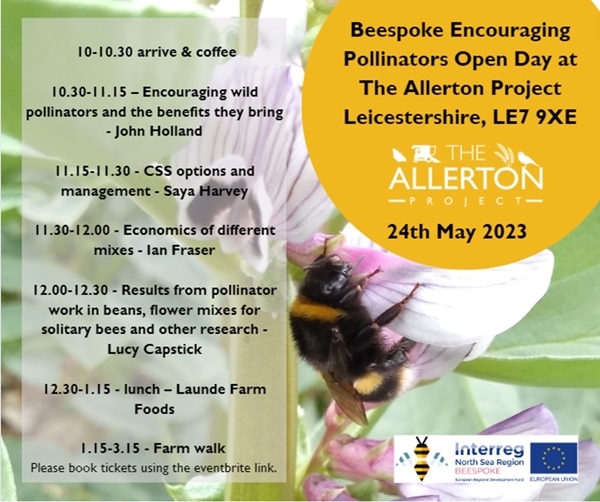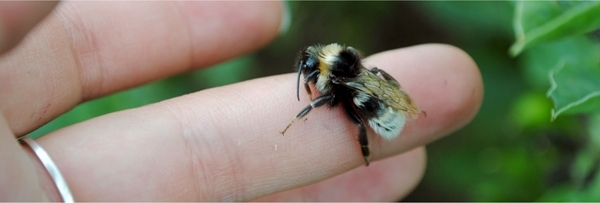“What’s your favourite flower?” might seem like a strange question to ask a bee, but this is what researchers from across Europe have been studying in a bid to increase farmland bee numbers – and they are ready to share their findings.
To share this research, the BEESPOKE project is hosting an open day at the Allerton Project to discuss the benefits of encouraging pollinators, provide advice on the countryside stewardship options available to do so, and help outline the kind of outcomes you might see as a result.

What would you say if you were told you could only eat for one month of the year? You might think that growing flowering crops is doing a favour for the bees, and while that is correct it is more complex than this. Pollinator dependent or not – flowering crops can provide a vast resource of pollen and nectar for an inconceivable number of bees. However, these crops only flower for a few weeks of the year and bees need other flowers to feed, so they can survive the winter and pollinate crops again.
The UK alone is home to a staggering 270 different species of bee which provide a wide range of benefits but have diverse habitat requirements. The BEESPOKE project researchers have been surveying the types of bees found around crops and nearby habitats, assessing if non-cropped habitats can promote higher numbers of bees in crop fields.

As UK farming has to contend with an increasingly unpredictable climate one thing is for sure, we need bees. Not just any bees, hardy, effective bees and lots of them to ensure no one wastes time and money trying to grow flowering crops that won’t produce the yields they are looking for. We seem to be constantly reminded that we need to #savethebees, but this is often misinterpreted as talking about honeybees. These are not really the ones that need saving, it’s our wild bees!
Some may still remember when insects were much more abundant and you had to wipe a cloud of them off your windscreen as you drove down a country lane, but with that issue removed, many more have been added. The BEESPOKE project partners are working with farmers and others who manage land in the countryside to tackle the issue of bee declines head-on.
If you are confused by the endless options of flower mixes to sow in your margins or unclear about the benefits of applying pollinator friendly measures, this open day is an opportunity to workshop your concerns and find some clarity on these matters.
The open day is being hosted at the Allerton Project on 24 May 2023 and lunch is provided. Book your free place on Eventbrite below:
BOOK YOUR PLACE >